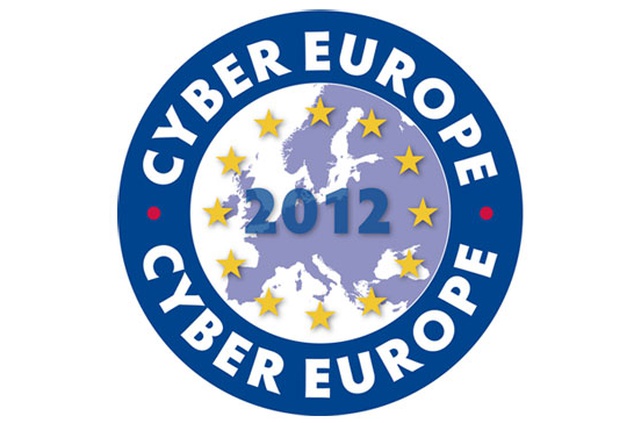Largest cyber security exercise “Cyber Europe 2012’’ report published in 23 languages
ENISA has published the new report of the largest ever pan-Europe cyber security exercise, Cyber Europe 2012, which is available in 23 languages. Almost 600 individual players participated, including actors from the private sector (financial, telecom and Internet), for the first time. The conclusion: for fast and effective response to cyber incidents, knowledge of procedures and information flows is crucial.
Published on January 31, 2013

The scope, scale and complexity of “Cyber Europe 2012” in figures:
- Twenty-nine EU (European Union) and EFTA (European Free Trade Association) Member States were involved in the exercise; twenty-five as active players and four as observers. In addition, several EU-Institutions also participated.
- Overall, 339 organisations took part, totalling 571 individual players being exposed to thousands of incidents (‘injects’). They included: cyber-security agencies and organisations, relevant ministries, e-government services, financial institutions (60), Internet Service Providers (ISPs) (60), and telecommunication operators.
- The majority (88%) of the exercise players rated it positively.
- Cyber Europe 2012 attracted considerable global media attention; more than 600 articles were published in 19 languages.
Key Findings (excerpts)
- Knowledge of procedures and information flows is crucial for fast and effective response
- Frequent cooperation and information exchange between public and private players is necessary
- Public–private cooperation structures differ among countries. Parallel, and sometimes overlapping, public and private procedures on the national level thus challenged national level cooperation
- Countries faced challenges in crisis management decision making, although this was not included in the exercise objectives (e.g., decisions have to be taken at more strategic levels)
- Scalability of operational procedures was a challenge, due to the large number of countries
- Up-to-date technical infrastructures and tools were critical for effective cooperation
- Efficient planning is crucial for conducting large-scale exercises
Key recommendations
- More pan-European and national cyber exercises are necessary to improve cross country cyber crisis cooperation, which the ENISA Good Practice Guide on National Exercises supports.
- EU Member States and EFTA countries should improve the effectiveness, scalability, and knowledge of existing mechanisms, procedures and information flows for both national and international cooperation
- More training in crisis procedures is necessary for all cyber-crisis stakeholders
- Increased private sector involvement at the national level should be considered for future exercises
- Input from other European critical sectors (e.g. energy, transportation) is a good next step.
The Executive Director of ENISA, Professor Udo Helmbrecht, concluded: “Cyber Europe 2012 was an important milestone to build trust, to better understand the existing European cyber cooperation mechanisms, and to strengthen Europe’s cyber-incident management”
For full report in all 23 EU official languages : Cyber Europe 2012 - Key findings report
Background: The first Cyber Europe exercise in 2010,COM/2009/149, Digital Agenda for Europe, and COM/2011/163.
For interviews; Ulf Bergstrom, Spokesman, [email protected], mobile: +30 6948 460 143, or Dr Panagiotis Trimintzios, Exercise Director, [email protected]


